8


8

acknowledge the fluctuating and nonessential state of yourself and your body, our practices, like my tattooing, become spiritual.”
By JESSICA MA daily senior staffer @jessicama2025Multicultural Student Affairs hosted “Skin Stories — Bodily Ritual and Art in APIDA Communities” on Wednesday, inviting panelists Rin Jung and Janani Nathan to share their experiences with tattoo artistry.
During the talk, tattoo artists Jung and Nathan discussed the ideas that inform their tattoo practices. They described their journeys in tattooing, as well as how tattooing serves as a space to build connections.
Jung said they think of their tattooing as a way of “spiritual and radical becoming.” They referenced French philosopher Gilles Deleuze, who discusses the notion of “becoming” in contrast to “being.”
“Being” is static and meant to be preserved, according to Jung. But “becoming” is constantly shifting — a concept reflected in their tattoo practices, they said.

“There’s no such thing as how our bodies are supposed to look,” Jung said. “Once you
MSA graduate assistant Grace Park said she resonated with Jung’s reference to Deleuze. She said she appreciated how Jung embraced the ambiguity and transformation of the body — especially since she said tattoos aren’t always permanent, fading as skin regenerates.
Tattooing provides active human connection, Nathan said, as two people sit together for hours on end to create art. For Nathan, hand poking tattoos becomes a “slow, meditative process.”
Nathan also emphasized the importance of trust in tattooing. In tattoo studios, some clients may feel like they aren’t allowed to ask questions or take a break, they said.
“You’re making a permanent, painful change to your body that you are consenting to, and it’s a beautiful change,” Nathan said. “The power of the client is so important to return to them and to treat tattooing like a collaboration.”
On social media, many people describe receiving tattoos as a form of therapy or describe
» See SKIN STORIES , page 6
After months of management turnover and instability, the Starbucks at 1734 Sherman Ave. hired a new permanent manager in March. But, employee and Weinberg sophomore Sarah Wachs said the store’s new manager has only exacerbated
the store’s issues.
Several employees at the Starbucks filed for unionization Wednesday to join the national Starbucks Workers United movement.
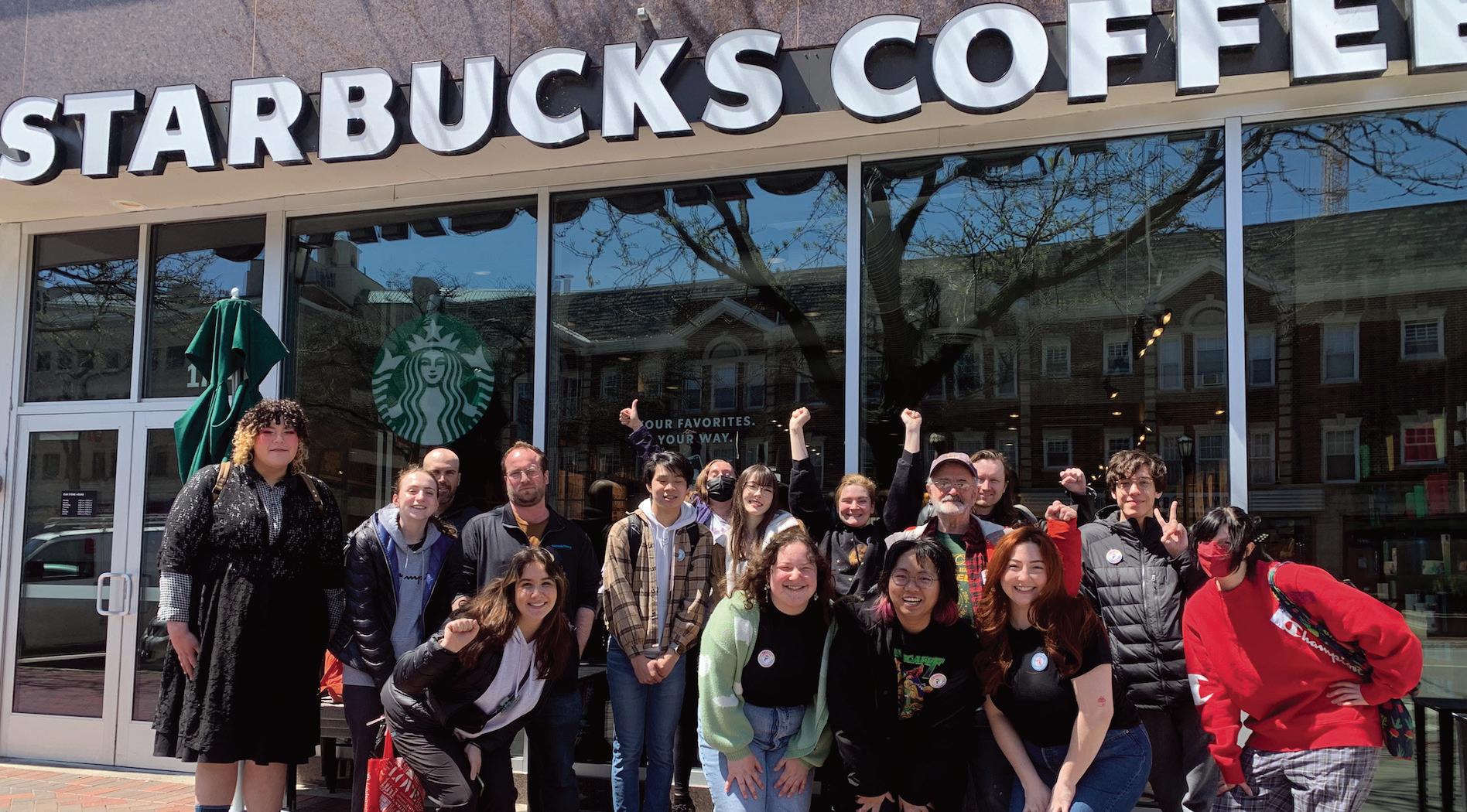
Wachs said the staff has faced discrimination based on religious identity and lack of protection for transgender employees, in addition to issues with communication, understaffing and underscheduling
Northwestern Sex Week, organized by NU College Feminists, launched their eight-part programming Monday with a sex toy giveaway at Norris University Center.
The NUCF planning committee began working on the week in April, collaborating with Sexual Health and Assault Peer Educators, Menstrual Equity Activists and The Women’s Center to coordinate the series of events.
Weinberg junior Maia Smith, a sex week organizer, said programming aims to promote sex positivity and safe sex through discussions, workshops and other events. Being a feminist requires rejecting societal narratives pushed onto female identifying people, she said.
“The whole point of feminism is to be comfortable in the body that you have and the feelings that you have for everything,” Smith said.
She added the week highlights voices often left out of conversations about sex, including people with physical disabilities and queer people. Organizers will
be screening “The Last Taboo,” a documentary about six people with physical disabilities and their relationships, on Thursday in Harris Hall.
Anthropology Prof. Noelle Sullivan will present Friday’s event, her “Guide to Having Mind-Blowing Sex.” She teaches a class on sexual pleasure in the Gender Studies Department, and said almost all messaging about sex from popular culture, movies and pornography is “a lie.” Only about 20% of women achieve orgasm through solely penetrative sex, which is the most common portrayal of sex in the media, she said.
“It’s great for creating business for sex therapists and couple’s therapists, but not very good for helping you achieve a satisfying sex life,” Sullivan said.
Sex Week should encourage students to have honest conversations about creating satisfying sexual experiences, she said. While the Illinois education system teaches sexual health, she said it does not teach sexual pleasure.
Sex Week aims to remedy that.

In Sullivan’s class on sexual pleasure, she said she anonymously polls her students, asking if they would like honest
week.
feedback about their partners’ sexual preferences. Across all the classes she’s taught, between 87-95% of students surveyed respond yes, but only 20-30% say they feel comfortable sharing that information.
Sullivan encouraged students who want to learn about sex to take her class; go to minority, LGBTQ or women owned sex shops oriented towards higher quality items; or listen to sex positive podcasts. The show “Sex Education,” which follows high schoolers who have open conversations about sex and consent, depicts sex realistically and
is “somewhere in sexual utopia minus the awkwardness,” she said.
Communication sophomore Simone Spalding said she attended Monday’s Kink 101 workshop after hearing about it from a friend. She had seen representations of kinks in the media but didn’t have a complete idea of what it entailed, she added.
At the workshop, Spalding said she learned that kinks are not inherently sexual.
“I didn’t really understand the nuances of what a kink was or that
» See SEX WEEK , page 6
— all without support from upper management.
“It came to a point where we were like, ‘We could get fired,’ but (unionizing) is almost a necessity because even when we would reach up to higher management about our concerns, there was nothing that was happening,” Wachs said.
Former employee and Weinberg sophomore Miracle Burt said
she has experienced Islamophobia from management. She said she quit last week because of the toll the job started to take on her mental health.
She said management made the environment uncomfortable for people of all religions and identities, noting two negative experiences she had during Ramadan » See SHERBUCKS UNION, page 6
Amid staffing shortages in police departments across the country, a new bill in Illinois will clear the path for DACA recipients looking to become police officers.
State Rep. Barbara Hernandez (D-Aurora)introduced the bill in the Illinois House of Representatives and said it has dual purposes.
“My hope is to not only help DACA recipients but also help the police departments that are currently going through a lot of shortage with … either COVID or retirement,” Hernandez said.
Deferred Action for Childhood Arrivals, a federal program that started under the Obama administration, provides temporary deportation protection and work permits to undocumented immigrants who arrived in the U.S. before turning 16 years old.
There are an estimated 400,000 undocumented immigrants living in Illinois, around 30,000 of whom are DACA recipients, according to Nina Sedeño, an immigration policy analyst at Chicago-based advocacy organization Latino Policy Forum.
Hernandez said her inspiration came from a similar bill that went into effect in California earlier this year. There are also several municipalities in Illinois, including Fairmont City and Blue Island, that already hire DACA recipients to the police force on a case-by-case basis, so she wanted to introduce a statewide law, she added.
But, federal law does not permit DACA recipients to carry firearms. That law became the center of debate on the bill in the Illinois House, which passed an amendment specifying that potential hires need federal approval to carry a firearm after they are hired.
“Unfortunately, we will need to see some federal government action,” Hernandez said. “I’m not saying everybody. Just allow those that are applying to be an officer, if they are hired, to be able to have a
» See DACA POLICE , page 6
Creators talk about body art as a form of expression, beingPhoto courtesy of Sarah Wachs Sherman Avenue Starbucks employees filed for unionization Wednesday. They expect to vote to officially unionize by the end of June. Illustration by Lily Ogburn Weinberg junior Maia Smith, an organizer of Sex week, said the NU College Feminists will have raffled around 110 sex toys by the end of the
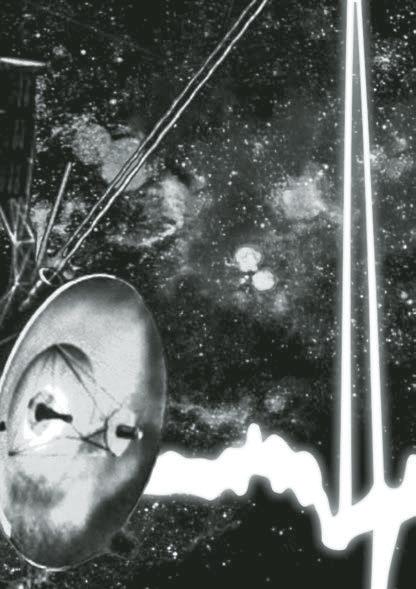




When Stephen McKinney needed to pay off a car loan in high school, he started a hair cutting business in an Evanston Township High School locker room. A slot receiver on the ETHS football team, Stephen McKinney trimmed his teammates’ hair for $5.
Stephen McKinney, now 21, is a full-time barber. He opened his own barbershop, CC Fades, with his father Reggie in April. It’s in a corner shop in a strip mall in Skokie, just over the border with Evanston.

Stephen McKinney first started cutting hair when he was eight years old. His father gave him a pair of clippers and asked him to give haircuts to his brothers, something Stephen McKinney learned just by watching his father.
“I guess my hands are blessed,” Stephen McKinney said.


After briefly attending Aurora University, Stephen McKinney said he went to barber school in Chicago with the goal of starting his own shop. He had his eyes set on the Skokie location due to its proximity to other businesses and ETHS.
At CC Fades, Stephen McKinney’s chair sits across from his father’s. A flat screen TV plays an NBA playoff game, while framed jerseys of famous Chicago athletes and sports memorabilia line the walls. The black and red sign on the storefront reads “CC Fades: Redefining the Neighborhood Barbershop.”
Pauly Jackson started getting his hair cut at CC Fades earlier this spring after being referred by a friend. Jackson said he keeps coming back because of high quality haircuts and the relationships he builds there.
“It’s a very open dialogue, a safe space and environment for my children to be here,” Jackson said.
Ken Hechtman, 70, the owner of the nearby Ken’s Diner & Grill and the landlord for the strip mall, said he always wanted a barbershop in his mall.
Beyond a simple barbershop though, he said the community makes CC Fades special.
“I see kids playing chess and people sitting around and talking and watching a game, and three or four people getting their hair cut,” Hechtman said. “It’s just so heartwarming.”
Stephen McKinney said being a barber has helped
him avoid violence and drugs. His father said his goal as both a father and a football and baseball coach was to encourage kids to prioritize school and work.
“I’ve seen a lot of people die young, lose their life at such a young age,” Stephen McKinney said. “It’s really a blessing to be 21. People are telling me, ‘Keep doing what you’re doing. You motivate me.’”
For now, Reggie and Stephen McKinney are looking to continue ramping up their business. Though Stephen McKinney said business has started off slow, he expects more clients over the summer.
Despite Reggie McKinney’s insistence that he never taught his son how to cut hair, he said he learns from Stephen McKinney.
“He’s teaching me now,” he said.



Stephen McKinney said he wants to move beyond just cutting hair in the future and host financial literacy workshops for other Black youth. He could open the shop because he saved up enough money during high school, and he hopes to help others do the same.
Each of CC Fades’ barbers have an album cover displayed on the wall next to their chair. Stephen McKinney’s is Nipsey Hussle’s “Victory Lap.” He chose the album for the symbolism of its title, he said.

“I’m getting to that point in my life where I’m starting to see potential success,” Stephen McKinney said. saulpink2025@u.northwestern.edu

An article published in Monday’s paper titled “Indigenous community members release birch boat” misstated Patty Loew’s position at the Center for Native American and Indigenous Research. She is the former director of CNAIR and Megan Bang is the acting director. The Daily regrets the error.


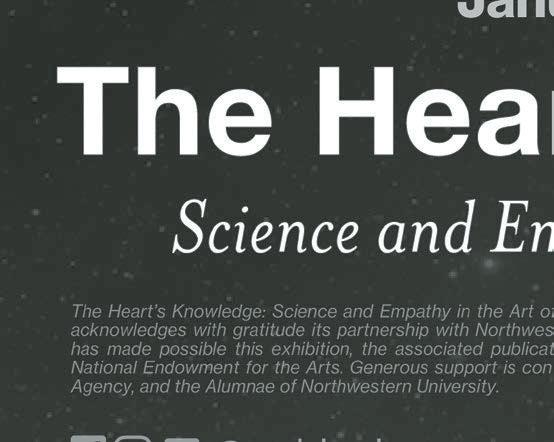

This spring, another 105 students have vowed to take “Marriage 101.” First taught in Spring Quarter 2000, this year marks the course’s 23rd anniversary at Northwestern.
SESP Prof. Alexandra Solomon has been involved in teaching Human Development and Psychological Services 340: Building Loving and Lasting Relationships: Marriage 101 since its inception — first as a discussion leader and lecturer, then as the professor 13 years ago. For her, it’s “wild” that the class is now older than some students taking it.
“When we first started teaching (the course), I was a graduate student. I wasn’t a mother. I was a newlywed,” Solomon said. “Now, I’m basically the age of my students’ parents … We really are entering the second whole generation of this class.”
Solomon said she still teaches the class even after all these years because of her belief in providing holistic relationship and sex education to emerging adults. By exposing students to this knowledge, she said she hopes they avoid entering or creating the damaged relationships she has witnessed as a couple’s therapist.
According to Solomon, the median age for marriage has risen in the past 23 years, which means many current students will experience a greater number of romantic relationships than past students. Solomon
Grace Bumbry (Bienen ’58), who helped pave the way for Black artists in opera, died Sunday at age 86, according to a Tuesday news release from the Bienen School of Music.
Following her graduation from Northwestern, Bumbry debuted as Amneris in “Aida” at the Paris Opera in 1960.
In 1961, Bumbry was cast as Venus in a new
said previous students of Marriage 101 were more likely to be engaged or married by the time they were in the class.
Because of the change in students’ relationship patterns, Solomon said she’s shifted her curriculum to focus more on dating, breakups and starting over afterward.
“That’s also a relationship skill,” Solomon said. “How do you get your heart broken and stitch it back together and keep on loving?”
Social media’s role in relationships is also an important, new dynamic to consider, she said. Solomon added social media shapes students’ identities and how they interact with romantic partners.
In class, Solomon said students discuss the lecture content in breakout sessions and reflect on their own experiences in physical journals because she thinks “relationships are old school.”
“We may transact parts of relationships via technology, but really, relationships are about the five senses and our bodies and our emotions,” Solomon said. While the class focuses primarily on romantic relationships, Weinberg senior Konrad Schmid said he believes the course can teach anyone to be a better person.
One takeaway he’s gained from the class is the idea of “relational self-awareness,” which Solomon focuses her work on.
“In relationships, it’s the idea that instead of finding the one that you’re interested in, it’s more about being the one,” Schmid said. “That’s a really cool, nuanced view of the world and just view of relationships in

production of “Tannhäuser.” She became the first Black artist to perform at the Bayreuth Festival in Germany, and received about 200 protest letters over her race. Her performance, however, garnered global media attention and praise.
The next year, she performed for President John F. Kennedy and First Lady Jackie Kennedy at the White House, becoming the first Black opera artist to perform there. Though she started as a mezzo-soprano, she later learned to also perform in the soprano range, according to the release.
During her career, Bumbry performed in almost every major opera house in the world, the release said. Her last full opera performance took place in 1986
general.”
Schmid said he has been planning to take the course since before he came to NU. He added that his advisor called it a “cult class” due to the number of students who choose to take it every year.
SESP junior Leah Ryzenman, who is also enrolled in the course, said the class is popular because of its applicability to students’ lives.
The class revolves around the students understanding their upbringings and how that impacts the way they view relationships, she said. Lessons on vulnerability and compassion apply beyond romance, Ryzenman added.
“That’s not something that is confined to a classroom, that’s gonna be something that you’re dealing with every single day,” she said. “It’s a really fun and interesting class, but it’s also something that can be really helpful to take with you.”
beatricevillaflor2026@u.northwestern.edu
at the New York Metropolitan Opera. In a full circle moment, she once again played the role of Amneris.
In 2009, President Barack Obama awarded Bumbry with the Kennedy Center Award for the Arts, which recognizes individuals who made significant contributions to American culture through performing arts.
“True to her name, Grace allowed her voice to shine through and touch all those within its range,” Obama said in his award speech. “With a pitch and presence like no other, she became a global sensation, moving audiences at the great opera houses of the world.”
The Daily Northwestern www.dailynorthwestern.com
Editor in Chief Alex Perry eic@dailynorthwestern.com
General Manager Stacia Campbell stacia@dailynorthwestern.com
Holly and John Madigan Newsroom
Phone | 847.491.3222

Campus desk campus@dailynorthwestern.com
City desk city@dailynorthwestern.com
Sports desk sports@dailynorthwestern.com
Ad Office | 847.491.7206 spc-compshop@northwestern.edu

The Daily Northwestern is published Monday and Thursday during the academic year, except vacation periods and two weeks preceding them and once during August, by Students Publishing Co., Inc. of Northwestern University, 1999 Campus Drive, Evanston, IL 60208; 847491-7206.
First copy of The Daily is free, additional copies are 50 cents. All material published herein, except advertising or where indicated otherwise, is Copyright 2020 The Daily Northwestern and protected under the “work made for hire” and “periodical publication” clauses of copyright law.

POSTMASTER: Send address changes to The Daily Northwestern, 1999 Campus Drive, Evanston, IL 60208. Subscriptions are $175 for the academic year. The Daily Northwestern is not responsible for more than one incorrect ad insertion. All display ad corrections must be received by 3 p.m. one day prior to when the ad is run.
Check
Wyatt Browdy
Maxine van der Donk
Theo Faugeres
Aja Frazier
Zach Gershowitz
Jason Huang
Inaya Hussain
Scott Hwang
Andres Kaneb
Leo Kurland
Jovana Lakic
Cate Rose
Janice Seong
Margaret Sprigg-Dudley
for $250 a month during the summer of 2022, and became so sick I couldn’t eat for days.
Content warning: This article contains discussions of abuse, neglect and suicide.
After I returned home from my first quarter at Northwestern in the winter of 2021, my father’s abuse escalated. My mother took me to her room in secret. She sat me down and warned me to be careful, scared my father was going to hurt me. She didn’t want to have to call the police on him. Severely malnourished and exhausted from working 60 hours a week, I packed my life into a backpack and have been on the run ever since.
That winter, I became a homeless and unaccompanied youth at NU. I quickly learned financial aid and housing campus policies do not account for students with unsafe home environments. In the past year and a half, NU’s policies have forced me to move six times and live in over 13 different places. During winter break, the dorms close and students must move out. On-campus housing for those three weeks costs $1,300. I was forced to couch surf with those willing to let me sleep in their living rooms during winter break. I lived in a moldy, hot closet
In the spring, earlier that year, I had first tried to appeal as a homeless youth to the Office of Undergraduate Financial Aid. I was forced to do so three times, presenting 90 pages of documentation of abuse and neglect each time. Over breaks, I was the student worker signing up for 10-hour shifts at the library and taking the 208 bus west to work back-to-back shifts at Walgreens.
There is a pipeline for queer, homeless youth like me to be incarcerated for survival crimes, fall victim to trafficking or end up in abusive relationships.
The Trevor Project, a suicide prevention organization for LGBTQ+ youth, notes that LGBTQ+ youth are four times more likely to die by suicide than straight youth.
Not many people at NU share my experience. Not many people at NU have had to learn to
navigate welfare on their own, pay their own hospital bills, or worry about tuition, rent, bills and food while balancing classes. But, NU must do better for the students who do understand.
I have found little to no support at NU. University administration should create a financial fund for survivors’ therapy because the financial aid office determines who gets emergency aid on a case by case basis. The administration should also hold regular meetings with the Center for Awareness, Response and Education, which advocates for survivors of sexual violence, relationship violence and stalking. We also need more survivor representation in student government and at NU board meetings, as well as resources centering the experiences of queer students of color.
I am writing this as a testament to the pain I have experienced. I am writing this for the freshman who was kicked out of her home over break while others
enjoy expensive vacations in Bali. I am writing this for the girl who spent winter break in a partial hospitalization program for PTSD recovery and had to file for emergency aid from Northwestern to cover the medical cost. I am writing this for the students who feel isolated in this community and in this institution, and feel like they can’t escape it.
I am also writing this now because this May marks the four-year anniversary of my friend, Hailey, losing their life to suicide. Hailey and I met in our freshman year of high school. We bonded over our shared experiences as queer youth who loved Dodie, debate and slam poetry. They were passionate about school reform and history; they were one of the most genuine and caring people you will ever meet.
In their last letter to me, Hailey told me to keep a discussion going about the causes I was passionate about. I promised them from then on, I would keep fighting for what I believed in. So most importantly, I am writing this for Hailey. Because four years later, here I am, fighting all the while.
Kaylyn Ahn is a SESP sophomore. She can be contacted at Lynnahn2025@u.northwestern.edu. If you would like to respond publicly to this op-ed, send a Letter to the Editor to opinion@dailynorthwestern. com. The views expressed in this piece do not necessarily reflect the views of all staff members of The Daily Northwestern.
Cars and planes have been U.S. residents’ predominant means of transportation for a while now, even if trains are significantly safer than traveling by car. According to economics Prof. Ian Savage’s research on transportation safety, U.S. public passenger trains have caused 0.43 deaths per billion passenger miles from 2000 to 2009, while cars caused nearly 17 times that many deaths in the same time frame. Planes may technically be the safest mode of transportation per Dr. Savage’s research, but the significant decrease brought by trains is truly incredible.
Beyond being safer for people, trains are also safer for the environment. While train construction would have a heavy environmental impact, high quality train routes could eventually reduce the need to construct and use as many cars or planes. Train travel, especially electric high-speed travel, would significantly reduce carbon dioxide emissions due to the decrease in cars driving on gasoline or diesel. For example, a drive from Millennium Park to the center of downtown
Milwaukee, Wisconsin would require 92 to 104 miles of travel. That’s almost three to six gallons of gas depending on the car model, which could be saved with trains. Trains and their corresponding infrastructure can also last decades, reducing the need for consistent new train planning and construction.
Amtrak, the main organization that runs public train travel in the U.S., offers significantly cheaper trips than most flights. A coach class seat on Amtrak’s Northeast Regional route from Washington D.C. to Boston normally costs about $36. In comparison, an economy plane ticket from the D.C. area to Boston can cost $80 or more. Train enthusiasts or those interested in seeing nature throughout North America can also take long train routes as a vacation. The California Zephyr and Southwest Chief are just some popular routes for scenic touring from or to Chicago.
However, the U.S. remains a car and planecentered country because of low train accessibility for many. Trains often operate once a day or less frequently, and stations tend to be in inconvenient locations. In Iowa, for example, the trains don’t stop at Des Moines or Cedar Rapids, two of their most populous cities.
Moreover, some tracks used by U.S. trains today are from the 19th and 20th centuries and have not been renovated since. Because of this,
LETTER TO THE EDITOR
Content warning: This article contains mentions of gun violence and death.
Firearms are now the leading cause of death for kids, teenagers and college-aged people. Caleb Nunes’ piece, titled “Northwestern should prioritize profit over social agendas,” only proves that he personally prefers lining the pockets of powerful institutions over protecting his peers from the harm caused by the gun industry.
Nunes attempts to label students who advocate for commonsense solutions to gun violence through legislative reform and industry accountability as “gun control advocates.” In doing so, he pushes the harmful narrative that gun violence prevention advocates want to take firearms away from responsible, law-abiding people. The term “gun control” weaponizes gun safety measures while generating fear and resistance among gun owners, supporters of the National Rifle Association and firearm manufacturers and dealers.
As a self-described “gun safety advocate,” I have no interest in removing guns from the hands of those who pass extensive background checks, undergo firearm training and securely store their weapons.
University-wide efforts to divest from gun manufacturers are not gun control. Instead, these are strategies to hold the gun industry accountable for the deaths it is responsible for. Every day, 120 people are killed in acts of gun violence, including those murdered in mass shootings in their classrooms and in daily violence on their streets.
Not only does the gun industry perpetrate the national slaughter of young people, but it actively markets to us as well. The Remington Firearms case is a prime example. After being sued for allegedly marketing their assault rifles to young men, including the 20-year-old shooter at Sandy Hook Elementary School, Remington reached a $73 million settlement with the families of the shooting’s victims. This case is just one of several lawsuits that have been brought against gun manufacturers.
Nunes does admit the possibility that a “small portion” of the University’s endowment funds may be invested in the gun industry but refuses to recognize the harm this money can cause or the scope of the investment. I would like to remind Nunes and every reader that any portion of a $14.4 billion endowment is significant. Even just 1% is $144 million.
Nunes closes out the piece by expressing concern about “the long-term future of NU” which he fears will be “greatly diminished at its own students’ expense.” I share his concern for the future of NU, but for evidently different reasons.
Amtrak’s Acela — the U.S.’s only public electric high-speed rail service — is unable to reach its top speed of 150 miles per hour for nearly 90% of its route.
Because of that, U.S. trains are slow. For example, Chicago’s often-delayed Lake Shore Limited to New York City and Boston takes around 19 to 22 hours without delays. Since U.S. trains must give the right of way to freight trains, train travel is even slower. In comparison, someone could drive the same distance as the Lake Shore Limited in about 15 hours or fly in about two hours. Considering how frequently many U.S. residents have to travel from one large city to another, the downsides of train travel currently outweigh its benefits for many people, even if trains are cheaper, safer and better for the environment.
The best solution is for the U.S. government to allocate more funds to train infrastructure, a move that can also start at the state level since any train distance under 750 miles can be dictated by the involved states. This means the Chicago to Milwaukee route could be renovated or designed by Illinois and Wisconsin if the states wished.
An electric high-speed rail with modern train rail would significantly reduce the 90-minute distance and ultimately make intercity travel more appealing.
While the U.S. has implemented some new
According to the NU Investment Office website, “The Investment Office acts as stewards of Northwestern University’s Endowment in order to provide a stable and growing stream of income to support the University’s academic and research goals for current and future generations.”
Nunes’ mention of NU’s long-term future echoes the language of “current and future generations” found in the Investment Office’s mission. The University’s word choice conveys confidence that it will fill classrooms of students for years to come.

My question to both Nunes and the Investment Office is this: What future generations will NU serve in the long term if young people in this country continue to be targets of gun violence? What student body will the University be able to support if future students are shot and killed in their elementary schools, movie theaters, supermarkets or places of worship before their freshman year even begins?
NU has a responsibility, first and foremost, to its students and their futures. Gun manufacturers are actively contributing to the gun violence epidemic that is stealing our futures from us.
Saving lives is not a social agenda. In the long term, it’s a business decision to ensure the University has a student body for years to come.
— Lily Cohen
policies to support public train travel, such as the 2021 Infrastructure Bill offering $66 billion to improve passenger and freight rail and $39 billion for public transit, the U.S. still lacks support for public electric high-speed rail outside of the Northeast. Spending the money to implement nationwide electric high-speed rail would significantly reduce CO2 emissions, potentially save lives and increase personal leisure and productivity.
I recognize that cars and planes are sometimes necessary, though I prefer trains. However, increasing the infrastructure of public trains will significantly help save lives, fight against global warming and make all of our lives easier. I write this in hopes that we can urge our local and state governments to invest more money and time into accessible train travel.
Anthony Kang is a Weinberg third-year. He can be contacted at anthonykang2024@u.northwestern.edu. If you would like to respond publicly to this op-ed, send a Letter to the Editor to opinion@dailynorthwestern.com. The views expressed in this piece do not necessarily reflect the views of all staff members of The Daily Northwestern.
The Daily Northwestern Volume 146, Issue 12
Editor in Chief Alex Perry
Managing Editors
Pavan Acharya Aviva Bechky
Opinion Editor Micah Sandy
Opinion Editor Micah Sandy
Assistant Opinion Editor Grant Li
Assistant Opinion Editor Grant Li
Avani Kalra Russell Leung Ava Mandoli
Erica Schmitt
Wendy Zhu
LETTERS TO THE EDITOR may be sent to 1999 Campus Drive, Evanston, IL 60208, via fax at 847-491-9905, via e-mail to opinion@ dailynorthwestern.com or by dropping a letter in the box outside The Daily office.
Letters have the following requirements:
• Should be typed and double-spaced
• Should include the author’s name, signature, school, class and phone number.
• Should be fewer than 300 words They will be checked for authenticity and may be edited for length, clarity, style and grammar.
Letters, columns and cartoons contain the opinion of the authors, not Students Publishing Co. Inc. Submissions signed by more than three people must include at least one and no more than three names designated to represent the group.
Editorials reflect the majority opinion of The Daily’s student editorial board and not the opinions of either Northwestern University or Students Publishing Co. Inc.
Not a lot of people at Northwestern have had to learn how to navigate welfare on their own, or pay their own hospital bills, or worry about tuition, rent, bills and food while balancing classes.
- KAYLYN AHN, Op-Ed Contributor
Nunes prioritizes dollars over firearm industry’s damage to NU students

Cedric Taylor believes cooking and teaching have a lot in common.
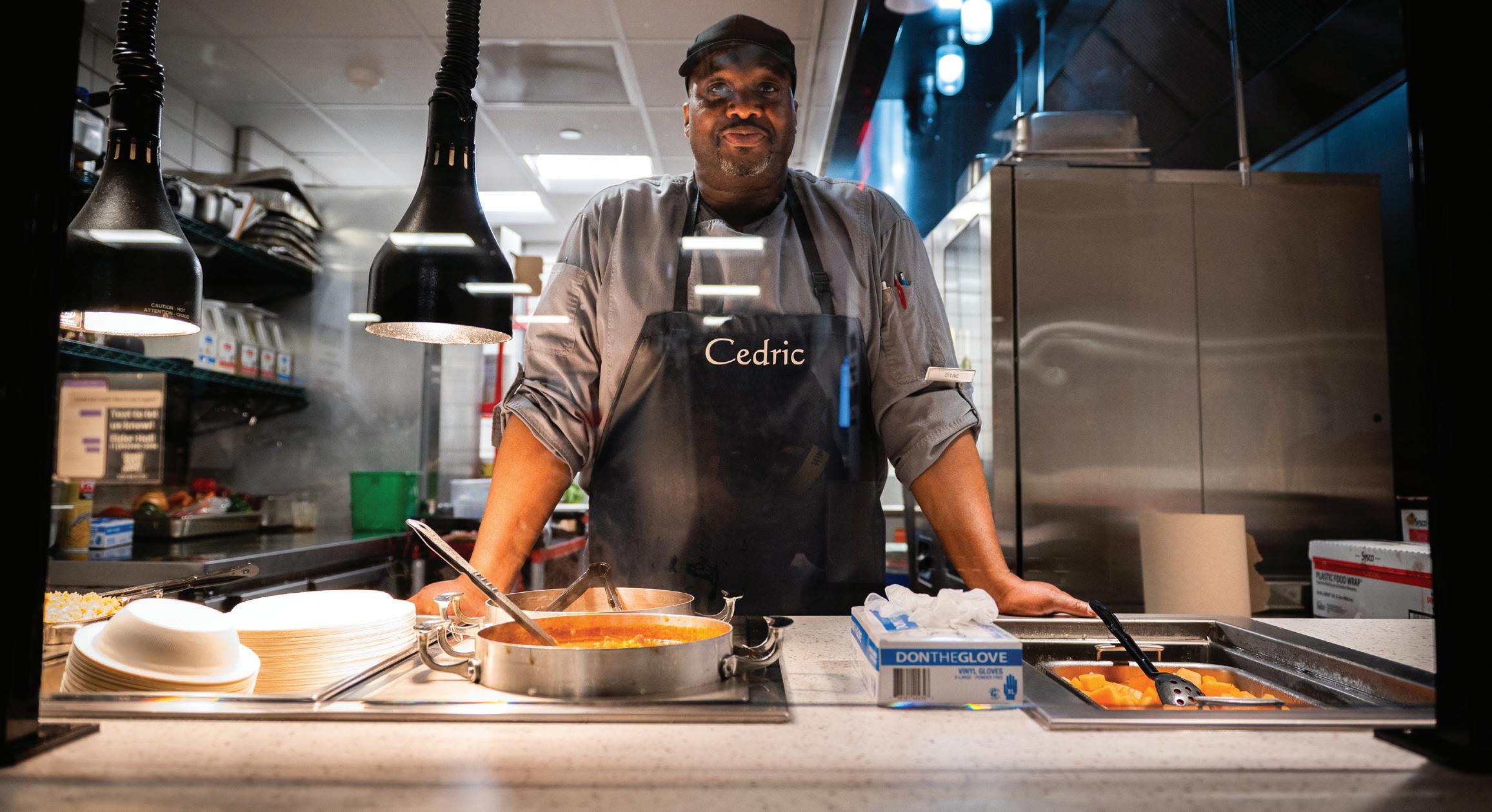
“No two chefs cook a recipe the same,” Taylor said. “No two students learn the same way, either.”


The 51-year-old Chicago native would know. Taylor worked in Chicago Public Schools kitchens for about 11 years and then moved to a South Chicago Ford factory for about 13 years. He then graduated from Washburne Culinary and Hospitality Institute in 2016.
But to students, he’s Cedric, an Elder Dining Commons’ kosher station chef who goes the extra mile to make people smile, according to Weinberg freshman Dominique Woods. Though he joined Northwestern Dining last summer, he’s already made a name for himself. As he plates meals, Taylor asks students about their days and gives them a taste of his sarcastic humor.
“I go to the kosher station frequently,” Woods said. “I come for great food and stay for Cedric’s witty jokes.”

After Taylor learned about Woods’ vegan diet, he began pre-preparing vegan kosher plates for her. Woods said it is nice for a chef to accommodate her needs.
Taylor said he has been building a rapport with the students he serves throughout his career, which began in 1990. During his time at CPS, he worked as a cafeteria chef at Arnold Mireles Academy, a South Chicago public K-8 school.
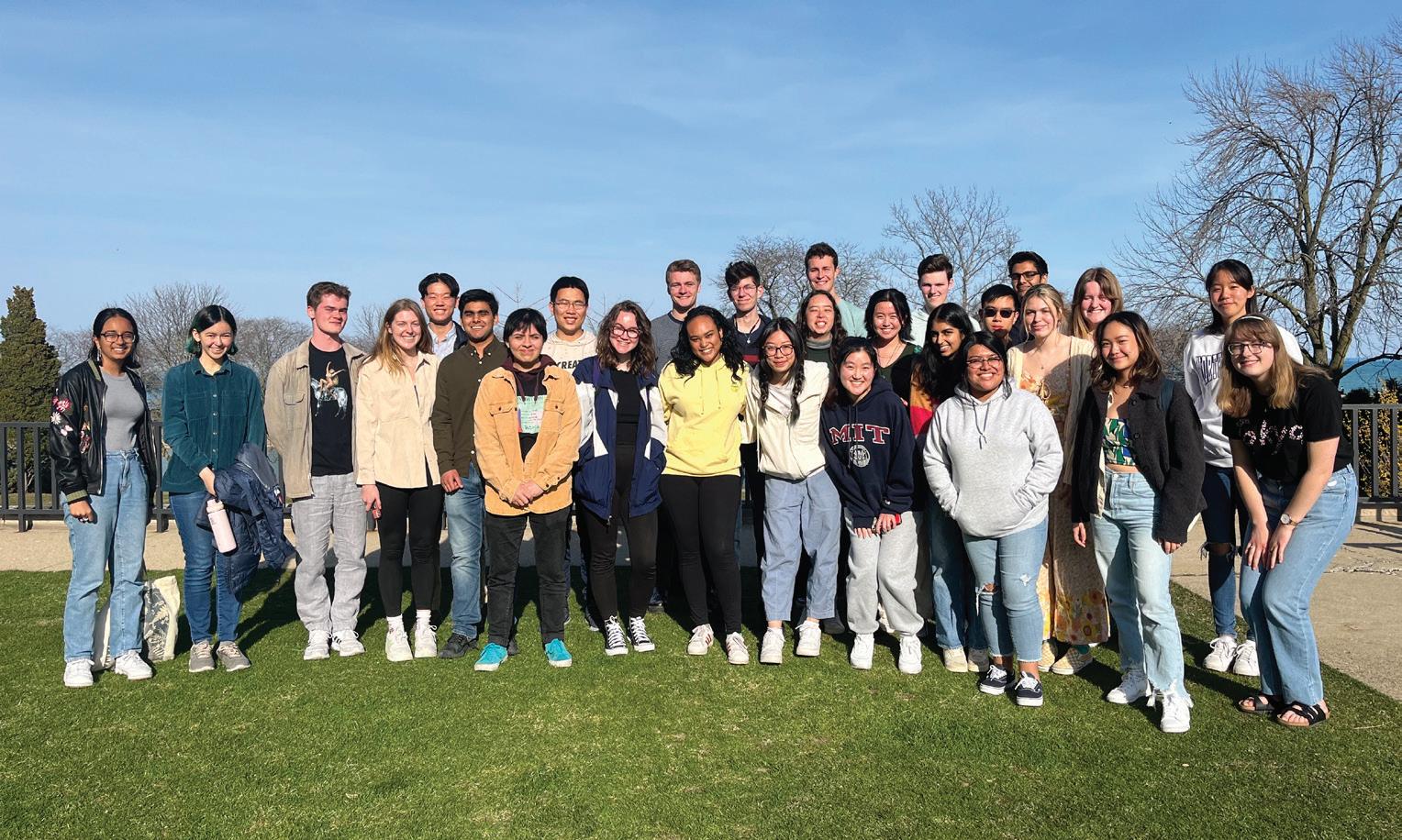
“I cook to connect with people,” Taylor said. “Seeing and speaking with the same students every day makes you comfortable with them.”
Taylor enrolled in Washburne to refine his culinary skills. There, he took a particular interest in food science, which trained him to invent new food combinations. He received an associate’s degree with high honors from the school.
“(Going to culinary school) was like reading your favorite book: You kept turning pages, and it got better and better,” Taylor said.
For the next six years, Taylor helped create menu items and supervised kitchens at several Chicago restaurants. In June 2022, he returned to serving students at Elder’s kosher station
every Sunday through Thursday night while he pursues a bachelor’s degree in education at Northeastern Illinois University.

Taylor has long associated cooking with teaching. He said his mother, who holds a master’s degree in special education from Chicago State University, would cook every meal for him and his older sister growing up. She devoted her career to teaching special education at CPS, Taylor said.
Taylor’s mother never pushed her children to pursue a career in education, Taylor said. He recalled that she believed in finding self-fulfillment. Even when teaching Taylor to cook, she encouraged him to develop his individual style.
“She would say, ‘Don’t make it taste like mine. Make it taste like yours,’” Taylor said.
After Taylor’s mother died in 1994, her children both followed in her footsteps, pursuing
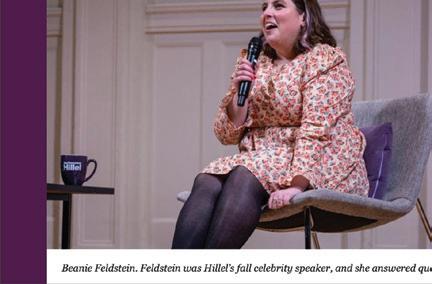
education. Taylor’s sister is currently a special education instructor with CPS and aspires to become a school principal.
Taylor plans to take summer courses at NEIU to expedite his degree, which he expects to earn in fall 2024.
James Buggs, Taylor’s friend of 25 years, noted the chef’s dedication to perfecting his craft.
“When Cedric has a passion, he’s very driven,” Buggs said. “Cedric is hard on himself. He has the discipline to recognize his faults and eliminate distractions.”
At 8:40 a.m. every weekday, Taylor zooms into his political science and history courses. By noon — five hours before dinner — he is in Elder preparing enough kosher food for 300 students.
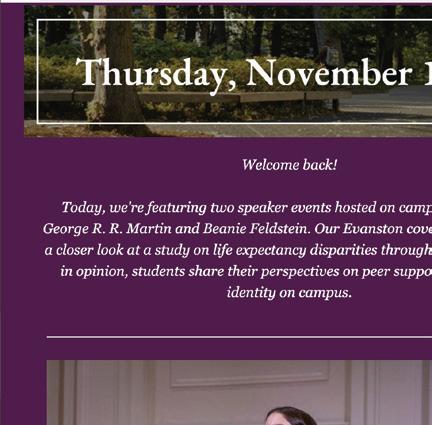
Taylor is usually still fully clad in chef’s whites when he begins his homework. During his breaks, he said he tries to find a vacant

table in the dining hall to start his assignments. After serving dinner, he heads home at 9 p.m. to complete his schoolwork.
“Balancing work and school is tough,” Taylor said. “But when I see the students I serve taking five classes, I tell myself, ‘I can make it work.’ The students are my motivation.”
For Taylor, students come first. With his culinary arts and education degrees, he intends to teach math, science or culinary arts at CPS. Taylor was still an elementary school cafeteria chef when his mother died. He believes that she would have been proud of his pursuits since.
“My food would never taste like hers and she knew that.” Taylor said. “But I bet she would be proud that it tastes like my own.”
kelvinwong2026@u.northwestern.edu
From page 1
this year.
According to Burt, the store’s manager made negative remarks about her fasting to other employees and wasn’t understanding about the physical limitations that come with fasting. The manager told another employee Burt’s fasting was not “good enough reason” to opt out of a weekly coffee tasting, she said.
“When I heard (that comment), I was like, ‘So do you want me to just leave my religion at the door when I come into work? That’s not how it works here in the United States,’” Burt said.
Employee Marissa Morrison said employees have consistently not been scheduled for enough hours, leaving the store consistently understaffed during the busiest times.
She said she went from working 24 hours a week to 12 since March — which is Starbucks’ minimum.
“Everybody was getting horrific hours. We were all begging to pick up shifts, trying to do whatever we could to afford to live,” Morrison said. “Then we got our latest manager and it got worse.”
Wachs said their current manager blamed this issue on employees, claiming they were not submitting
From page 1
their tattoo artists as therapists, Park said. Tattoo artists are in charge of taking care of skin, and she said the placement of ink constitutes an intimate process.
During the talk, Park described the reciprocal relationship between a tattoo artist and the client.
“It’s not just the person who is receiving some therapeutic experience,” Park said. “It’s the artist themselves, or the practitioner of the two, who is also benefiting from that relationship.” Jung, who also makes documentaries, spoke
From page 1
gun on duty and off duty.”
The Illinois House voted unanimously to pass HB3751; and the bill currently awaits a vote in the Illinois Senate. If passed, Illinois will join several other states, including Utah and Colorado, in opening police positions to those other than citizens and permanent residents.
State Rep. Cathy Kipp (D-Fort Collins, CO), the House sponsor of the Colorado bill, said her bill differs from Illinois’ in that it would allow both DACA recipients and asylum seekers to become police officers.
The idea for the bill originated when a constituent, who is a DACA recipient, reached out to Kipp about his desire to become a police officer, she said. She then reached out to the Colorado Department of Public Safety and found that it has received many similar requests.
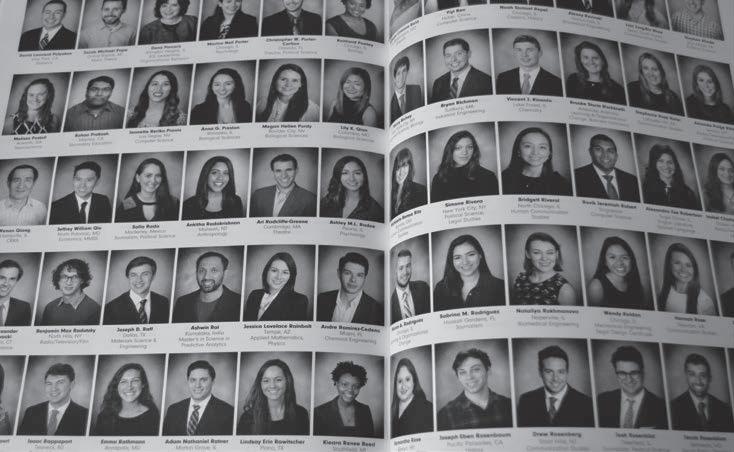
enough available hours. Both Wachs and Morrison said that’s false.
Wachs said their manager has also discussed hiring more people to their 30-person staff and made remarks about firing college student workers — who make up about one-third of the staff — and plan to leave for the summer. He also threatened not to rehire them if they wanted to come back after the summer.
Wachs said transgender and Jewish staff members are not protected at the location. Both management and customers have created uncomfortable situations for employees with those identities, Wachs said, and management hasn’t tried to stop the incidents from happening.
“We have a number of transgender coworkers who have been blatantly misgendered by our boss and by other customers and people, and there’s been no reconciliation for that,” Wachs said. “We have had a number of customers that have come in and been blatantly antisemitic to us and nothing has happened to them.”
Wachs said, several employees worked with Starbucks Workers United’s Chicago branch for about a month to start organizing. They went through training and learned about propaganda the corporation might use to stop them from organizing. During that
about the connections between their artistic disciplines. Tattooing has inspired some of their documentary topics, they said. Through art, Jung contemplates violence, as well as the resistance to violence.
“Forgetting in this contemporary, capitalist society is a way of violence,” Jung said. “Documentary filmmaking is a kind of way to resist that.”
Like filmmaking, tattooing is a form of documentation, Park said. In a world prone to erasure, these practices require people to remember the fact that violence occurred, she said.
Park reiterated Jung’s and Nathan’s comments of tattooing as a form of education. Tattooing is a place
“We didn’t want to do just a one-off exception that has been done in other states,” Kipp said. “So this bill gets more applicants to apply to be peace officers, and it increases the diversity of those applicants.”
Kipp said the restrictions on firearm possession was also a roadblock for the Colorado bill. However, Kipp said the state found an existing exception in federal law that addresses the issue.
According to a memo Kipp shared with The Daily, federal law allows federal and state departments and agencies to “authorize the use and possession of a firearm as they see fit.” This would allow police departments to issue firearms to a police officer “as long as the individual stays within the department or agency authorization,” the memo reads.
For Evanston Police Department Cmdr. Ryan Glew, hiring foreign-born applicants is a longstanding practice. He said EPD currently has one sworn member who is not a U.S. citizen.

THE DAILY NORTHWESTERN is not responsible for more than one incorrect insertion of an ad. Corrections must be received by 10am on the day before ad runs again, call 847-4917206. All Classifieds must be paid in advance and are not accepted over the phone. To run online, ad must run in print on same day. The Daily does not knowingly accept misleading or false ads and does not guarantee any ad or claim, or endorse any advertised product or service. Please use caution when answering ads, especially when sending money.
It is the policy of The Daily Northwestern to accept housing advertising only from those whose housing is available without discrimination with respect to sexual orientation, race, creed or national origin. The presumption is therefore, that any housing listing appearing here is non-discriminatory.

THE DAILY NORTHWESTERN is not responsible for more than one incorrect insertion of an ad. Corrections must be received by 10am on the day before ad runs again, call 847-4917206. All Classifieds must be paid in advance and are not accepted over the phone. To run online, ad must run in print on same day. The Daily does not knowingly accept misleading or false ads and does not guarantee any ad or claim, or endorse any advertised product or service. Please use caution when answering ads, especially when sending money.
HELP WANTED ADS are accepted only from advertisers who are equal opportunity employers. The presumption, therefore, is that all positions offered here are available to qualified persons without discrimination on the basis of race, color, religion, national origin, sex, sexual orientation, marital status, age, handicap, or veteran status.
time, Wachs said, those involved were scared of losing their job.

Wachs said they could not speak about unionizing on store property and had to assess privately who in the staff would support the idea and who wouldn’t.
But, Morrison said, staff at the Sherman Avenue Starbucks is like a family, so she was not worried about reaching the legally required 30% support from the staff to file for unionization. But their goal, according to Wachs, was to achieve 70% support — which they achieved.
“If one person was experiencing something negative, we all felt injustice over it,” Morrison said.
Wachs said even though management took their unionization announcement well, the company’s antiunion stance was evident. After filing, she said, management replaced her posters presenting resources on organizing efforts with other posters discouraging unionizing.

As Starbucks employees across the country have started organizing — including the store at 519 Main St. and several in Chicago — the corporation has come under fire for anti-union practices. Starbucks CEO Howard Schultz testified in front of Congress for allegedly breaking labor laws in March.
The corporation said in a statement to The Daily it is working on improving its relationship with partners
to interrogate, learn and unlearn things, she said. Tattooing helped Nathan learn more about the Tamil Hindu culture they grew up in. It also held them accountable to doing the research on designs like kolam, they said, before permanently marking a body with them.
Nathan said they’ve discussed with South Asian clients their feelings of sharing cultural designs with clientele who do not have connection to a specific symbol’s history. Now, Nathan reserves certain flash sheets for South Asian clients. For example, ‘Flash Sheet L’ features religious imagery with cobras and lotuses, outlined in bright colors.
For a recent project, Jung was inspired by the
“If you go back 150 years in law enforcement, a lot of people that immigrate here have become police officers,” Glew said. “I think the concept generally is nothing new to law enforcement.”
Since HB3751 has yet to pass the Illinois Senate, Glew said EPD hasn’t begun discussing the selection process for applicants who are DACA recipients. Those conversations will start when the bill is passed, he added.
In addition to this bill, Hernandez said she is also advocating for legislation that would allow DACA recipients to apply to be firefighters, which she hopes will pass later this year.
“I think it’s going to be a great opportunity for many people to expand on jobs that they couldn’t do at all,” she said. “(DACA recipients) have federal proof to work and social security … so I’m just trying to open those doors for them.”
caseyhe2026@u.northwestern.edu
of Starbucks Workers United.
“Looking forward, we remain engaged and ready to bargain in-person with the unions certified to represent our partners,” Starbucks said. “We continue to encourage all parties to apply current law in their approach to future bargaining efforts.”
Madison Lisle, a Workers United organizer who worked with the Sherman Avenue Starbucks, said the time between filing and their official election, which Wachs said is set for late June, is a vulnerable time for the organizers.
“Now is the time where the company is going to try to hit them hardest with union busting,” Lisle said.
Lisle said partners at the store need solidarity from the community and to keep internal morality strong.
Wachs said there is a contradiction between Starbucks’ purported values and their policies and treatment of employees.
“Starbucks has this big value and mission of creating a welcoming place where people can step away from their world and have a reprieve for a moment,” Wachs said. “But we’re not really given the resources for us to be able to (provide that), and then we’re punished when we’re not able to.”
shannontyler2025@u.northwestern.edu
Korean shamanistic practice of bujeok — Korean and East Asian Daoist incantations and magic symbols, written or painted as talismans.
As a tattooer, Jung said they hope to take on the role of a shaman. Jung starts by listening and incorporating the client’s stories into the tattoo design. Jung’s bujeok tattoos have a comprehensive form, so they can create a collaborative piece with clients.
“In both of your tattoo practices, you strive to collect the stories of the people you are creating the designs for,” Park said. “The overlap between tattoos and teaching is really important.”
jessicama2025@u.northwestern.edu


From page 1
world, so I was happy to go to the workshop,” Spalding said.
She added social spaces on campus discussing sex exist, but the conversations are not always “open-minded.” Spalding said she almost never discusses sex in structured spaces like class or extracurriculars. And, she doesn’t usually find herself discussing more specific aspects of sex, like kinks, in general.
For people curious about sex, Smith said the Women’s Center has a lot of sexual health resources and offers counseling.
“I don’t think anybody can tell you how to navigate your own sex life, but I definitely think we can start the conversation,” Smith said.
kristenaxtman2025@u.northwestern.edu
The breakfast burritos and tortas at Ovo Frito Café have drawn Evanston residents through its bright yellow entrance since the restaurant opened six years ago. A recipient of three “Best of Evanston” awards from The Daily, Ovo Frito’s brunch is already recognized as some of Evanston’s best. Now, according to Yelp, the Evanston staple produces some of the best late-morning grub in America.

The review aggregator ranked Ovo Frito as the #42 brunch restaurant in America for Mother’s Day. This selection marks the second time Ovo Frito has made the best brunch list, coming in at #60 in 2021.
“We love what we do,” Ovo Frito co-owner Zinnia Iglesias said. “Our hard work is paying off.”
Yelp considered every U.S. restaurant in its Breakfast & Brunch category, ranking them by the volume and ratings of each establishment’s reviews, Yelp representative Kesha Chau Becerra told The Daily in an email.
Chau Becerra said Yelp caps selections at 10 per state. Ovo Frito is one of two selections in Illinois, along with Buttermilk in Geneva.
Iglesias opened Ovo Frito in July 2017 with her husband Roberto Flores. Neither had any experience cooking breakfast foods in a restaurant, but Iglesias said the pair decided it was a niche that needed to be filled in Evanston.
They found their Maple Avenue location on Craigslist, Iglesias said. Flores taught himself how to cook eggs and pancakes while the couple renovated the interior with Ovo Frito’s signature yellow paint and broken egg light fixtures.
“It was scary at the beginning,” Iglesias said. “We had no money.”
However, six months later, the pair could pay off some of their bills and the stress started to scatter, she said.
Now, the business is a family affair. Iglesias said her children help out in the restaurant and each of the three has a menu item named after them.
She thinks the restaurant’s inviting environment is what causes people to rate Ovo Frito so highly on review platforms like Yelp.
“We want people to feel at home,” Iglesias said.
“This is our home.”
Even on a Tuesday morning, soft chatter bounced around the sunkissed-yellow walls of Ovo Frito. As one group of customers celebrated a birthday at the restaurant, broken-egg-shaped light fixtures cast the space in a warm orange glow. That morning, Iglesias handed Evanston resident Dan Parker his takeout order. “Thank you Dan,” she said without even checking the receipt. Iglesias said she remembers many customers by their orders — vegan tacos or wraps are typical selections for Parker, she said.
Parker said Ovo Fritos’ food is good, but its staff is “outstanding.”
“They deserve the award,” he said. “They know people. They seek out connections with their customers.” Ovo Frito’s menu is a mélange of cuisines. There are American breakfast staples like pancakes or waffles. But born in Belize, Iglesias said she and her husband wanted to add a Latin American twist to their menu options. So, Ovo Frito also features prominent Latine dishes like tortas and chilaquiles, which Iglesias said is her favorite.
“That’s where all the flavors come from,” she said with a smile.
Those chilaquiles, along with french toast, were especially popular among Yelp reviews, Chau Becerra said.
Medill Prof. Bradley Hamm said the huevos divorciados are his current favorite at Ovo Frito. Hamm would walk to the restaurant with his son on weekends, he said. The practice soon became a tradition.
“I just think it’s a special place, and it has a wonderful environment,” Hamm said. “You feel very comfortable when you’re there.”
On a few occasions during the COVID-19 pandemic, Hamm has distributed Ovo Frito gift cards to those in his classes in hopes that his students become restaurant regulars.
Hamm said he encourages students to frequent various local businesses. But since Ovo Frito isn’t in downtown Evanston, the café has an “off the beaten path” quality, he said.
Ovo Frito’s location is one reason its rise is surprising to Iglesias.
“This is such a small place. We’re not even in downtown Evanston,” she said. “I never thought it would be this successful.”
colereynolds2026@u.northwestern.edu
Hecky’s Barbecue, an Evanston institution for nearly 40 years, won the Chicago Tribune’s Readers’ Choice Award for the best Chicagostyle BBQ in April.
The award is the first the restaurant has received since its founder, Hecky Powell, died in 2020, according to Cheryl Judice, Powell’s wife and the current president and owner of Hecky’s. Judice closed the restaurant for renovations after Powell died. She reopened it in November 2020 on what would have been Powell’s 72nd birthday.
“This is really the first recognition I have received for the restaurant since it’s been redone,” Judice said. “That’s what really struck me.”
Powell was a civic leader in Evanston, known for his youth mentorship and leadership efforts. A lifelong Evanston resident, he first opened Hecky’s with Judice on the corner of Emerson Street and Green Bay Road in 1983. It’s been a staple of the Chicagoland area since and remains in the same storefront.
Floyd Johnson, general manager of Hecky’s, said the award is a validation of the restaurant’s continued success in the face of challenges including the COVID-19 pandemic and Powell’s death.
“We feel obligated to honor his legacy,” said Johnson, who has worked at Hecky’s since it first opened. “That’s a motivating factor for us.”
With its motto “It’s the sauce,” Hecky’s is known for its rib tips and specialty barbecue sauce. But residents said the restaurant’s involvement in the community is what makes it a special place.
Kemone Hendricks, a longtime Hecky’s customer and founder of educational nonprofit Evanston Present and Future, said she appreciates Powell’s founding role in the Evanston Work Ethic Program — in addition to the restaurant’s food.
The program, started in 2017 by Powell, supports Evanston youth interested in alternative career paths, offering workshops, mentorship and paid internships in technology and trade fields.
“Hecky’s has been giving young children chances for decades back when the restaurant first opened,” Hendricks said. “I know they are continuing the efforts with the WE program
and growing it. That’s definitely something the community is very thankful for at large.”
Judice said she bought the restaurant with her husband but wasn’t involved in day-to-day operation of the restaurant until Powell died. She said she learned a lot from longtime staff members like Johnson and Aracely Rodriguez on how to run the business.
Johnson, who worked alongside Powell for almost 40 years, said his death was abrupt. But he said years of Powell’s guidance prepared him to carry on his legacy.
“Hecky was a big loss, but he prepared us well,” Johnson said. “He operated as a mentor for me, he showed me everything, he let me hang out with him, he really guided me.”
Looking ahead, Judice said she hopes to expand the sale of Hecky’s proprietary items, including its barbecue sauce and Juneteenth Strawberry Soda. The soda bottle has an image of Powell’s great-grandfather, who was born into slavery in Missouri, on the front.
The soda’s sales profits are donated to the Forest E. Powell Foundation, Powell’s nonprofit that supports youth with vocational training.
Since the restaurant landscape in Evanston has changed in the four decades since Hecky’s
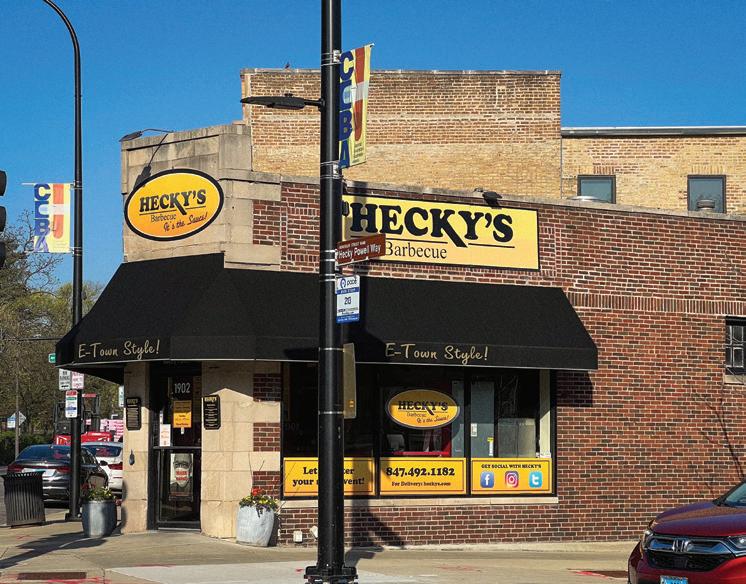
first opened, Judice said receiving the Readers’ Choice Award is a reminder that Hecky’s continues to be a fan favorite.
“It’s like, ‘Hey, folks, we’re still here,’” Judice said. “And the (rib) tips must still be really good, because we won, so there you go.”
katewalter2025@u.northwestern.edu
Alicya Dennison remembers visiting McGaw YMCA as a child growing up in Evanston. Now, Dennison, the executive assistant to McGaw’s CEO and president, feels a “familial” connection to the branch.
Finding community in the workplace hasn’t
always been easy, said Dennison, who faced racial discrimination at previous places of work. At McGaw, she said she’s been able to fully claim her identity as an Afro-Latino woman.
“I think that’s part of your leadership too, knowing who you are, having that confidence and having the courage to show up as who you are, every time,” Dennison said.
She is one of two McGaw employees participating in YMCA’s 2022-23 national leadership networks, which aim to train employees of marginalized identities for higher leadership positions. Melissa Franada, McGaw’s marketing director, is one of eight members of YMCA’s Asian and Pacific Islander Leadership NetworkInternational Leadership Institute, and Dennison is one of 28 in the association’s Hispanic Latino Leadership Network.
For Franada and Dennison, the impact of identity-based leadership networks goes beyond their curricula. Women of color often face institutional barriers to advancement in the workplace, which the pair said they’ve both experienced firsthand.
Creating a space for multicultural leadership development helps women of color escape the “exhausting” scrutiny they face while in positions of power, Franada said.
“With more women of marginalized communities represented in leadership, you have less of that extra energy going (toward) fending
off all these other microaggressions to just be yourself,” she said. “You create more people that are self-aware, that are able to find the joy in what they want to be doing.”
The HLLN’s goal is to equip Latine employees with tools they need to reach executive positions at their YMCA branches, Dennison said. The six-month program focuses specifically on professional development.
According to Franada, through the APILNIL, members participate in a yearlong program that centers Asian-American culture, identity and leadership. In March, the group traveled to South Korea and the Philippines on a 10-day trip to learn about the YMCA’s international work. The Asia and Pacific Alliance of YMCAs oversees regional work and local Y communities, which Franada saw firsthand during the trip.
Franada will also begin implementing a capstone project next month as part of her work for APILN-IL. Her project focuses on understanding relations between the Asian communities in the city of Evanston and at McGaw.
“I know that there is an Asian community in Evanston, but there’s not a lot of connections within that with the McGaw YMCA,” Franada said. “Part of what I wanted to be able to do in joining the leadership network and taking on the work that I’m doing with the cohort is to strengthen those relationships.”
Similar anti-racism initiatives are taking
shape at McGaw, Franada and Dennison said. As part of an ongoing effort to achieve equity in the workplace, the branch recently reevaluated its payroll to ensure all of its employees are receiving equitable pay, Franada said.
As the executive assistant to Monique Parsons, CEO and president of McGaw, Dennison added she’s been particularly uplifted by seeing her boss, who is also Black, leading the branch.
“At McGaw YMCA, we believe that everyone has the potential to be a leader,” Parsons said in an April news release. “We are committed to providing our employees with the resources they need to grow and develop as multicultural changemakers.”
Though they said there’s still work to be done to boost inclusivity at McGaw and in Evanston, Franada and Dennison added they’re excited to bring leadership skills they learn at the national event back to the branch.
Encouraging YMCA leaders to start conversations about equity and representation, Franada said, is a crucial step toward fighting racism in the workplace and in the broader Evanston community.

“I think the fact that we found people within these spaces, where you can be honest, vulnerable, and ask really tough questions, has been so welcome,” she said.
lilycarey2025@u.northwestern.edu
After defeating Rutgers in last weekend’s series , No. 19 Northwestern won its second consecutive outright Big Ten regular-season championship. The Wildcats (35-11, 20-3 Big Ten) will compete in the conference tournament this weekend, looking to win its first Big Ten Tournament title since 2008.
Top-seeded NU’s first matchup will take place Thursday against Iowa. Here are some key factors to keep in mind as the Cats head to Urbana-Champaign looking to earn yet another accolade prior to a Women’s College World Series.

What will NU’s pitching rotation pull off?
Graduate student pitcher Danielle Williams, the Cats’ ace, picked up her 100th career win at Rutgers last weekend. As 2022’s unanimous Big Ten Pitcher of the Year, the southpaw continues to deal at an elite level. Williams likely plans to leave it all in the circle during her final conference tournament, but which of the Cats’ other pitchers will step up and help lead the team to victory?
Junior pitcher Lauren Boyd may play
a key role. Her arm will likely be fresh, as she only pitched one inning of two-hit ball against Rutgers. Along with Boyd, senior pitcher Sydney Supple and graduate student pitcher Cami Henry have consistently turned in stellar displays in the circle this season and must repeat their regular season efforts when the lights shine brightest. Henry shone when she tossed a complete game shutout against Notre Dame in February, and Supple has dominated on both offense and defense, scoring two runs against Penn State and allowing just one run in four innings against UCLA.
To win this weekend, the Cats will need to maximize the talents of each and every one of their pitchers.
Will the Cats’ veterans shine this weekend?
Along with Wiliams and NU’s pitching squad, many of the Cats who contributed to 2022’s dream season returned to play this year. Graduate student catcher Jordyn Rudd helped spark NU’s run to the WCWS last year, and she continues to impress this season. Rudd’s walk off grand slam against Penn State in April was just one highlight in her standout overall regular-season performance. Expect Rudd to deliver big at the conference tournament and add a couple more home runs to her name.
Graduate student infielder Maeve
Nelson also plays a fundamental role for the Cats. In NU’s final game against Rutgers on Sunday, Nelson scored her 25th run of the season, propelling the Cats to a 2-0 victory and to the Big Ten regular-season championship. With years of experience with NU to boot, Nelson is sure to amaze in the upcoming series.
Which new stars will shine for NU under the brightest lights?
The Cats’ dominance this regular season paved the way for new stars to blossom at Sharon J. Drysdale Field.
Sophomore infielder Ayana Lindsey and freshman outfielder Kelsey Nader have delivered all season long, contributing key hits and runs for the Cats, especially during the 24-6 win against Penn State. Both tallied multiple hits that game, and Nader even drove in 3-runs of her own.
Northwestern’s past weekend series against Indiana brought positives and negatives: getting swept, finding potential in starting pitching, competitiveness and offensive production. However, none were present Tuesday against Milwaukee.
NU’s (8-35, 3-15 Big Ten) performance versus the Panthers (22-24, 10-13 Horizon) made their outings against the Hoosiers look like optical illusions, losing 3-2 after a late-game rally failure.
With two conference series remaining and one non-conference matchup down at Wrigley Field next Tuesday, here are two takes to think about as the Cats near the homestretch.
Starting pitching beginning to turn it around, leaving bullpen in the dust
Outside of junior right-hander Luke Benneche’s nine-run performance on Sunday, the backbone of NU’s pitching staff has been the starters — dating back to UIC on May 2.
After receiving the weekend off, junior right-handed pitcher Matt McClure diced up the Panthers lineup Tuesday. In two innings of work, McClure sat down all six batters, including a strikeout.
The back-to-back combination of graduate student right-hander Ethan
Sund and lefty Ryan Keenan knocked out the next two innings, highlighted by six strikeouts between the two. The next two, though, were when the train went off the rails, as freshman Drew Dickson and senior Jack Sauser — both righthanders — gave up two runs, and lefthanded junior Nolan Morr gave up one more in the eighth.
Besides McClure, starters graduate student right-hander Michael Farinelli commanded the mound on Friday and left-handed freshman Sam Garewal on Saturday — together letting through just four earned runs over 14 innings.
As the season continues, coach Jim Foster’s everyday lineup, unlike weeks prior, has solidified itself — an advantage the team flexed against Milwaukee.
Yet, with most hitters ranging from over 80 at-bats to 140, NU’s dismal season at the plate dispels the optimism. Freshmen outfielders Marty Kaplan and Owen McElfatrick are the only consistent freshmen seeing the field down the stretch.
This failure was prominent against Milwaukee, as the Cats only collected five hits, two by sophomore infielder/catcher Alex Calarco. Most of the lineup won’t change for the rest of season with seven games left on the slate, but NU’s lackluster production hitting wise is nerve-racking.
lawrenceprwice2024@u.northwestern.edu
Sophomore infielder Grace Nieto and freshman infielder Kansas Robinson have also made a significant impact throughout the campaign, especially against Penn State and other Big Ten rivals. Robinson is a freshman to look out for, as she had a career high seven bases against Illinois in early April and also homered, tripled, and drove in two runs in that game. Nieto also broke her own record for runs in a single game this season, with three against Nebraska.
NU’s newest stars will be ones to watch for this weekend as all bats will be on deck for the Cats.
What do the Cats’ most recent honors mean for the team’s forthcoming performance?
Coach Kate Drohan won Big Ten Coach of the Year for the second consecutive
season, the Big Ten announced Wednesday, marking her fifth time winning the accolade and her third in the last four seasons. Williams and graduate student infielder Nikki Cuchran both received First Team All-Big Ten nods, and Rudd, junior infielder Hannah Cady and graduate student outfielder Skylar Shellmyer picked up Second Team All-Big Ten honors. Additionally, freshman outfielder Kelsey Nader and Robinson earned spots on the All Freshman Team, while Rudd picked up an All-Defensive Team spot. Senior outfielder Kendall Peterson collected a sportsmanship honor. With these recent awards under their belt, the Cats are in a great position to nab an elusive conference tournament crown this weekend in Champaign, Illinois before heading to the NCAA Tournament. kunjalbastola2026@u.northwestern.edu
A memorable offseason has gotten even better for Northwestern.
After initially declaring for the NBA Draft, senior guard Boo Buie has decided to return to Evanston and play out his final year of eligibility for the Wildcats in the upcoming 2023-24 season, announcing his decision on Twitter on Monday morning.
“The past four years have been nothing short of amazing. Through the ups and downs, the memories we have made together are priceless,” Buie said in the video. “I will forever be grateful for the support you all have given me during my time in Evanston. This place is truly special. But I’m not done yet. Wildcat Nation — I’m back.”
Buie’s decision is a major one for coach Chris Collins’ bunch and Cats fans as a whole. The first-team AllBig Ten player capped off one of the best basketball careers in program history last year, averaging 17.3 points and 4.5 assists per game and leading his team toward multiple historical accomplishments along the way. Now, Buie has the chance to have one of the most storied careers in program history.
Collins has already made splashes in the transfer portal this offseason — adding impactful guards who will get significant playing time in
Princeton transfer Ryan Langborg and Denver transfer Justin Mullins.
The Cats also landed Liberty forward transfer Blake Preston. These players, who were initially meant to replace Buie’s production on the offensive floor, will now be able to benefit from his playmaking abilities.
While NU has lost guard Julian Roper II to Notre Dame and forward Robbie Beran to Virginia Tech, the team’s roster reconstruction looks ready to build off of the historic season with another one. This past year’s Cats team won 12 conference matchups — the most in program history — and had its first ever victory over an AP No. 1 team in Purdue. Notably, the team capped off a tremendous year by making its only second NCAA Tournament
appearance in program history.
With Buie having the keys to an explosive offense, it’s not hard to imagine that the All-Big Ten guard could lead NU to another run towards a Big Ten championship and past the first weekend of the NCAA Tournament.
Buie’s return means NU has one open roster spot remaining for the upcoming season. The team, and the University as a whole, now await guard Chase Audige’s decision to either keep his name in the draft or return like his backcourt partner.

If Audige decides to follow suit and return to Evanston as well, there is no question that the Cats will be in the race to win the Big Ten.
aayushyaagarwal2024@u.northwestern.edu